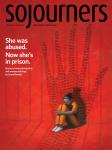IN NOVEMBER, the season after Pentecost comes to a close. The church has reflected on the power of its genesis and its spread outward from Jerusalem. The lessons now represent one last opportunity to review the fundamentals before returning to the story of Jesus from its inception. Several of these scriptures communicate the notion that time is running out. Others emphasize the knowledge of who we are in God’s sight and who we understand Jesus to be. The season that began with the power of the Spirit breathing a new creation into the world ends this month with an affirmation of sovereignty.
The psalms that weave through this grand story move from the personal prayers of a pious person to the worship of a grateful congregation. The prophets echo each other: God is going to call the world to account and God acts to preserve her people. The epistles confess the theology of the ancient church with an urgent zeal, allaying its fear and anxiety about what is to come. The gospels communicate their own urgency. Rather than simply preparing the church to abandon its earthly ship, the gospels call us into relationship with one another, to care for each other as we would care for Jesus in the flesh for however long we tarry here.
The coming seasons of Advent and Christmas are marked by an adoration of the Christ child. But this longest season on the church’s calendar bids us to love and serve the Christ that is hardest to see, the one hidden in the flesh of each other.
[November 5]
Respect for Dissent
Micah 3:5-12; Psalm 43; 1 Thessalonians 2:9-13; Matthew 23:1-12
The scribes and Pharisees are regularly portrayed as opposing Jesus, while his respect for their teaching and authority is often greatly neglected. His saying in Matthew 23:2-3 is a case in point: “The scribes and the Pharisees sit on Moses’ seat; therefore, do whatever they teach you and follow it.” Jesus validates the scribes and Pharisees as the legitimate successors to Moses. He accepts their teaching as normative. However, preachers and readers often move straight to the end of verse 3: “but do not do as they do, for they do not practice what they teach.” Sermons on the hypocrisy of the scribes and Pharisees are legion, but are not always careful to note the implications of Jesus’ disagreement with them over their failure to follow their own teaching.
These verses not only remind us that Jesus was Jewish, but that he respected the scholarship and authority of the scribes—who are more like biblical scholars than copyists, more what we mean contemporarily by “lawyers”—as well as the Pharisees, despite their theological differences. Jesus’ affirmation of the Jewish religious and scholarly tradition as authoritative for his followers is a caution against thinking that Christians are the only legitimate interpreters of scripture.
The relationship between Christianity and Judaism has many painful and shameful chapters marked by anti-Judaism (belief in the inferiority or irrelevance of Judaism), anti-Semitism (hostility toward and bias against Jews), and supersessionism (the notion that Christians have replaced Jews as God’s people). It is useful to remember that Jesus never rejected his Jewish identity or heritage, and was a religiously observant Jew even as he inaugurated a movement that would became a new religion.
Jesus and the scribes and Pharisees were part of the same religious tradition but interpreted scripture differently and had significantly divergent theological understandings. This has implications for how we engage contested issues in Christianity today. Jesus’ insistence that his followers respect the teaching of the scribes and Pharisees remains as “red words,” the words of Jesus in the gospels to us.
[ November 12 ]
My Sister’s Keeper
Amos 5:18-24; Psalm 70; 1 Thessalonians 4:13-18; Matthew 25:1-13
Wise and foolish virgins (or “bridesmaids”) in Matthew 25 are object lessons, teaching what the reign and realm of God is like. (“Bridesmaids” is a poor translation. There is no bride in the story and no indication they were to attend a bride.) The parable is about the consequences for failing to prepare and the rewards for preparing appropriately, and welcome to or rejection from the wedding feast that symbolizes the reign and realm of God.
The text uses the categories of “wise” and “foolish” for women who bring or forget extra oil, indicating who is to be emulated. I suggest that though the wise women make it in to the feast and therefore into God’s reign, they are not paragons of virtue. They are, in a word, selfish. They operate from a paradigm of scarcity—there may not be enough for all of them, so they refuse to share.
Scarcity is certainly one way to think about resource allocation; however, it is not the only one. Sadly, this is a normative model for far too many Christians: “There’s not enough. I don’t have enough to share. You’re on your own.” The lack of sistering and solidarity among the women—and from the groom—seems at odds with the larger gospel and contradicts the message of other passages. For this reason, as a womanist, I resist this text and its normative reading. I see some other options: The women could have traveled together with the torches and oil they had, even if some torches went out. They could have lit fewer torches and rationed the oil. They could have said they would not leave anyone behind or in the dark.
There is an overlooked aspect of this text. It is often assumed the groom denied the women entrance because they lacked oil. He did not. The door to the realm of God was open to them, but they went instead to buy something that would not grant them admission anyway.
[November 19]
Time's Almost Up!
Zephaniah 1:7, 12-18; Psalm 90:1-12; 1 Thessalonians 5:1-11; Matthew 25:14-30
It’s the end. The day of reckoning in Zephaniah: “The great day of the Holy One is near, near and hastening fast” (1:14). The reading ends before the promise, much later in the book, that some will indeed be spared—“I will leave in the midst of you a people humble and lowly” (3:12). The day to end all days is at hand; just around the corner. Time is running out. The psalmist pleads, “Teach us to number our days” (Psalm 90:12).
Zephaniah’s urgency is shared by many who read the signs of the times in the face of the earth. While the reading focuses on human beings, our fate is inexorably tied up with the fate of plants and animals on this planet, the planet itself, and its ecosystems and climate. Some contemporary environmental prophets cry out, much as Zephaniah did, that we are reaching a point of no return, that if we do not change our ways the bulk of us may not survive the coming cataclysm.
The Bible has an ample supply of “end of the world” texts and offers several perspectives and responses. The return of Jesus as a “thief in the night” (1 Thessalonians 5:2) is one such text. It offers the comfort that “whether we are awake or asleep” when that day comes, we will be fine because we will be with Jesus. For many Christians, personal assurance of salvation and vindication on the day of judgment are all that matter. But what about the rest of the world?
Christians have been waiting for the return of Jesus, the day of judgment, and the end of the world (before its remaking) for more than 2,000 years. But until that happens, we live here, on this planet. It’s the only one we have, and we do not know whether it will be another 2,000 years before Jesus returns. What is our responsibility to this planet, its creatures, and the water and air on which we all rely?
[ November 26 ]
Woman-Born
Ezekiel 34:11-16, 20-24; Psalm 95:1-7a; Ephesians 1:15-23; Matthew 25:31-46
Son of Woman. The one aspect of Jesus’ birth that Christians and non-Christians agree on is that his mother was human. There is a diversity of belief about his paternity, but that Jesus was born of a woman is not in dispute. It is in his mother’s womb that he receives his humanity.
What is disputed by some (in and out of the church) is whether Jesus’ father was human or indeed God. So there is no small degree of irony in the translation of huios tou anthropou as “Son of Man” (used extensively in Matthew’s gospel), particularly since it can be just as easily translated as “Son (or Child) of Woman,” “Human Child (Son/One),” “Mortal One,” or even “human being,” as the corresponding Hebrew and Aramaic expressions are translated throughout the scriptures. (See Numbers 23:19, Psalm 144:3; Isaiah 51:12; Ezekiel 2:1, and Daniel 7:13. Also note that the King James Version uses “son of man” throughout both testaments while the New Revised Standard Version reserves it for the New Testament.)
The expressions huios tou anthropou (Greek), ben adam (Hebrew), and bar enosh (Aramaic, in Daniel 7:13) point to two very different beings. On the one hand, the emphasis is on humanity and the mortality that defines it, making it God’s primary address for Ezekiel (Ezekiel 3:10, 17; 11:4; 20:3). On the other hand, there is a being who may have the general appearance of a human but has abilities far beyond humanity, associated with the clouds and heaven (Daniel 7:13).
In Jesus, both meanings come together. Jesus is born of woman, therefore human and mortal. He is also beyond humanity and has his own claim on heaven. In Matthew 25, the woman-born Jesus speaks of his return in glory with the angels (verse 31). He who is Son of God and Son of Woman will judge all based on how we have treated the woman-born (verses 34-45). Whatever we have done or not done for the least among the women-born, we have done or not done for Jesus, the Son of Woman.
“Preaching the Word,” Sojourners’ online resource for sermon preparation and Bible study, is available at sojo.net/ptw.

Got something to say about what you're reading? We value your feedback!

